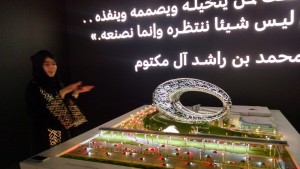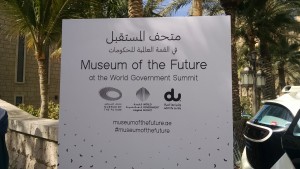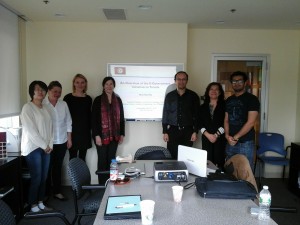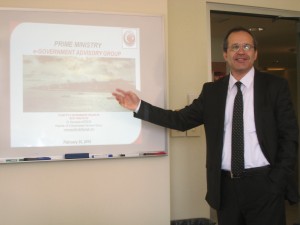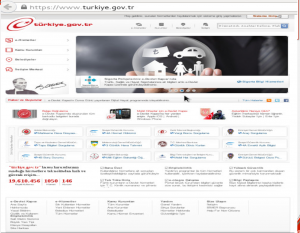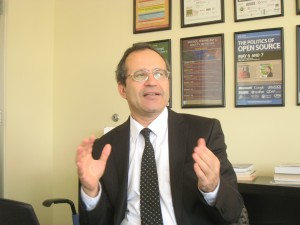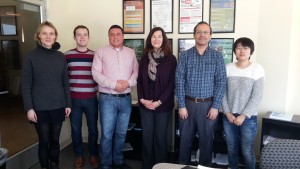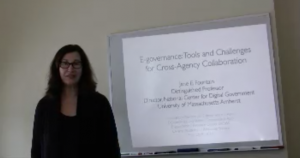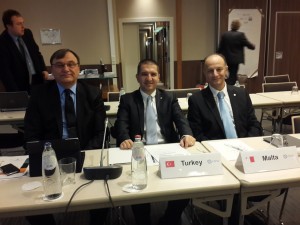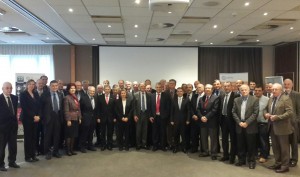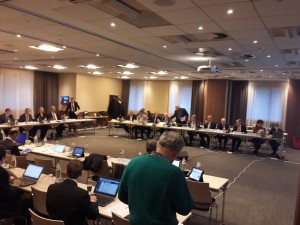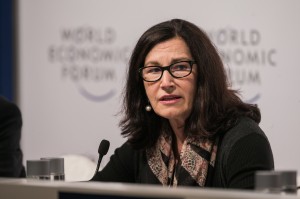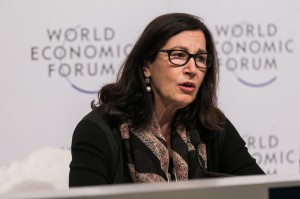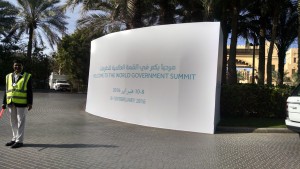 Jane Fountain, Director of NCDG, was invited to participate in the 4th World Government Summit at the invitation of His Highness Lt General Sheikh Saif Bin Zayed Al Nahyan, Deputy Prime Minister and Minister of Interior of the United Arab Emirates. The Summit was held from 8-10 February in Dubai under the patronage of His Highness Sheikh Mohammed Bin Rashid Al Maktoum, UAE Vice President, Prime Minister and Ruler of Dubai. Fountain, Distinguished University Professor, Political Science and Public Policy, is the Chair of the Political Science Department and Director of the National Center for Digital Government.
Jane Fountain, Director of NCDG, was invited to participate in the 4th World Government Summit at the invitation of His Highness Lt General Sheikh Saif Bin Zayed Al Nahyan, Deputy Prime Minister and Minister of Interior of the United Arab Emirates. The Summit was held from 8-10 February in Dubai under the patronage of His Highness Sheikh Mohammed Bin Rashid Al Maktoum, UAE Vice President, Prime Minister and Ruler of Dubai. Fountain, Distinguished University Professor, Political Science and Public Policy, is the Chair of the Political Science Department and Director of the National Center for Digital Government.
 The World Government Summit focuses on shaping governments of the future and improving government service delivery through innovation. Billed as the largest annual government gathering in the world, the Government Summit serves as a global platform by gathering officials, thought leaders, policy makers and business leaders dedicated to developing the future of government.
The World Government Summit focuses on shaping governments of the future and improving government service delivery through innovation. Billed as the largest annual government gathering in the world, the Government Summit serves as a global platform by gathering officials, thought leaders, policy makers and business leaders dedicated to developing the future of government.
This is not Fountain’s first visit to the region. As former Chair, Vice Chair and current member of the World Economic Forum Global Agenda Council on the Future of Government she has participated in summits and meetings in the UAE for the past seven years and previously worked with executives and government leaders at the Dubai School of Government.
 At the Summit, Fountain heard President Barack Obama, who gave the keynote address by video; Paul Kagame, President of Rwanda, who discussed the growing influence of the UAE as a force for innovation and change in the Middle East and Africa; Muhammed Yunus, Founder of Grameen Bank and Nobel Peace Prize Laureate; and Mary Robinson, former President of Ireland and President of Mary Robinson Foundation for Climate Justice.
At the Summit, Fountain heard President Barack Obama, who gave the keynote address by video; Paul Kagame, President of Rwanda, who discussed the growing influence of the UAE as a force for innovation and change in the Middle East and Africa; Muhammed Yunus, Founder of Grameen Bank and Nobel Peace Prize Laureate; and Mary Robinson, former President of Ireland and President of Mary Robinson Foundation for Climate Justice.
During her visit, Fountain also met with US Ambassador to the UAE, Barbara Leaf, to discuss digital government, cybersecurity policy and innovation. Fountain was joined at the meeting, which took place at the US Embassy, by Hon. Chester Atkins, former member of the U.S. House of Representatives and of the Massachusetts Senate and House of Representatives; and by Boston University Professor Jessica Stern, terrorism expert and policy consultant. Fountain said, “The UAE is one of fastest growing nations in the world and has the region’s most highly developed infrastructure. It has become an international leader in important areas of government innovation and use of technology. While its path is quite different from that of the west, it is a country that merits close observation for its impressive innovations.”
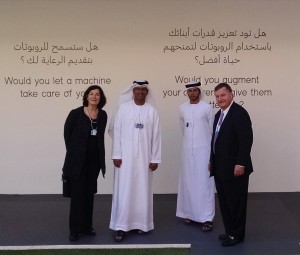
Fountain also met with principals and analysts at Hedayah, one of the world’s top international institutes dedicated to countering violent extremism through research, analysis, dialogue, communication and capacity building. Hedayah’s activities range from counter-messaging and work with former fighters and victims of terrorism to police training, the role of women, empowering communities, participatory approaches, national strategies and legal issues in prevention of terrorism.
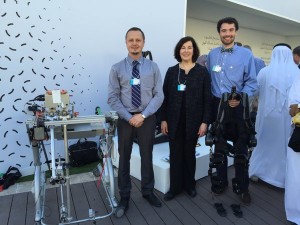
Among the highlights of the Summit was the UAE AI & Robotics Award for Good. The award supports innovations in artificial intelligence and robotics that focus on practical areas of value to society such as health, social services and education. Two UMass Amherst alumni – Michael McKinley and Maciej Pietrusinki, both of whom received Bachelor’s degrees in Mechanical Engineering – were members of the teams that won first and third place, respectively. McKinley’s team, SUITX, has developed affordable exoskeletons for children with neurological disorders. Pietrusinki is founder and president of AndrosRobotics LLC, which developed a robotic leg advancement device that administers gait training therapy to stroke and other neurological patients.
The Summit featured an Innovation Lab. Among the displays:
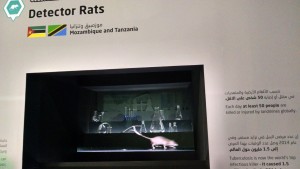
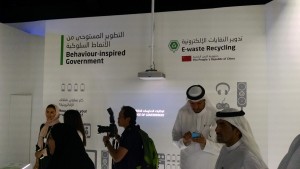
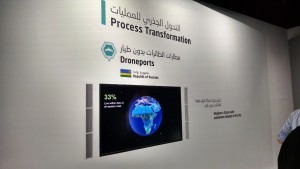
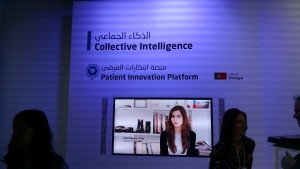
Dubai will soon launch the Museum of the Future in a building suitably designed fit for its purpose.

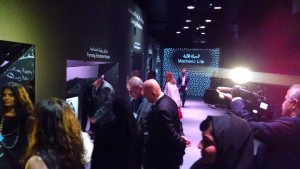 Beyond facial recognition … detecting emotion from facial images
Beyond facial recognition … detecting emotion from facial images
Prototype exhibits at the Summit examined human enhancement, facial recognition, robotics and more.

Events such as the World Government Summit are critical for global information sharing and knowledge transfer. It is impressive to see the Emiratis take the lead in such an important international gathering.

